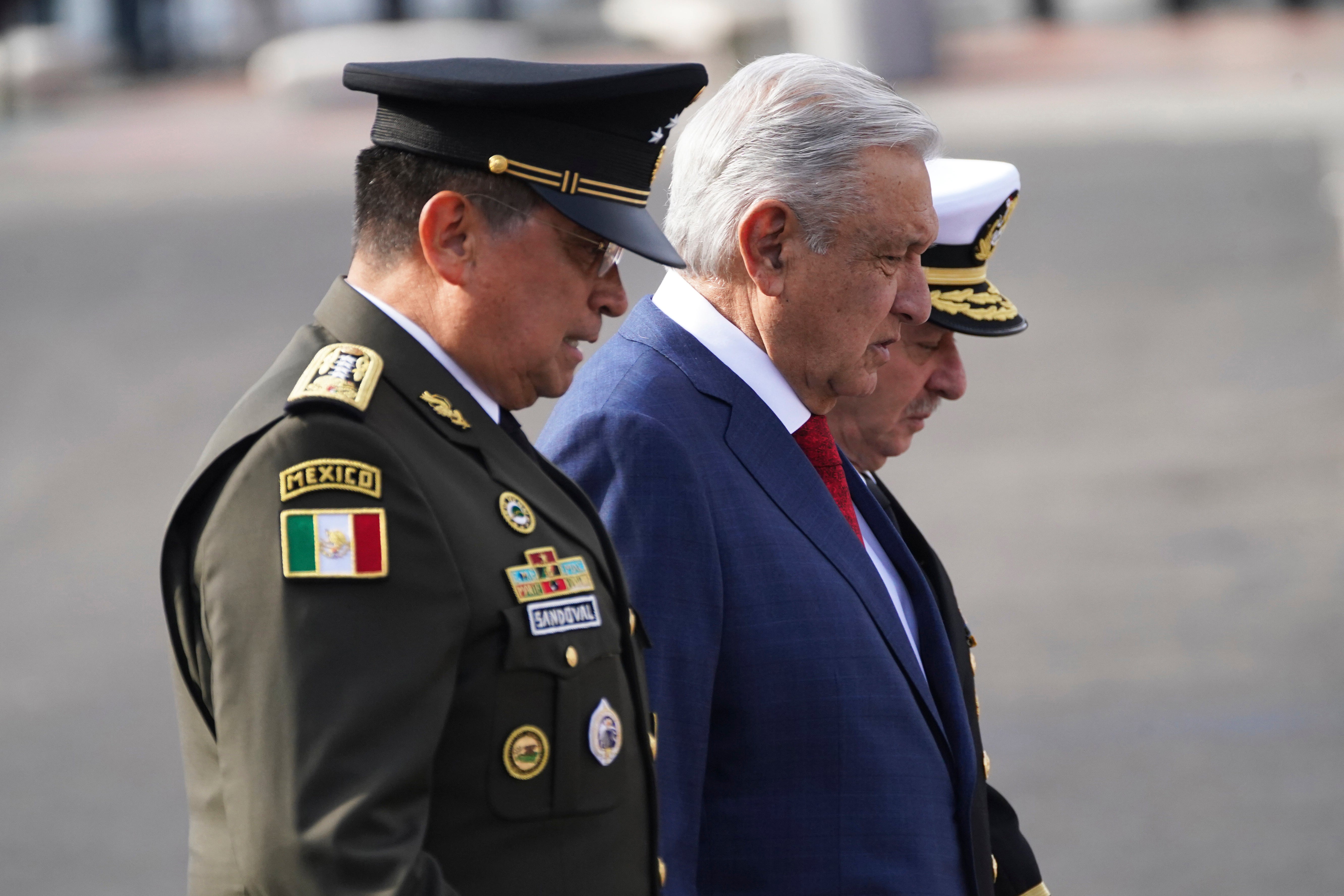Hack puts Latin American security agencies on edge
A massive trove of emails from Mexico’s Defense Department is among electronic communications taken by hackers from military and police security institutions in several Latin American countries

Your support helps us to tell the story
From reproductive rights to climate change to Big Tech, The Independent is on the ground when the story is developing. Whether it's investigating the financials of Elon Musk's pro-Trump PAC or producing our latest documentary, 'The A Word', which shines a light on the American women fighting for reproductive rights, we know how important it is to parse out the facts from the messaging.
At such a critical moment in US history, we need reporters on the ground. Your donation allows us to keep sending journalists to speak to both sides of the story.
The Independent is trusted by Americans across the entire political spectrum. And unlike many other quality news outlets, we choose not to lock Americans out of our reporting and analysis with paywalls. We believe quality journalism should be available to everyone, paid for by those who can afford it.
Your support makes all the difference.A massive trove of emails from Mexico’s Defense Department is among electronic communications taken by a group of hackers from military and police agencies across several Latin American countries, Mexico's president confirmed Friday.
The acknowledgement by President Andrés Manuel López Obrador comes after Chile’s government said last week that emails had been taken from its Joint Chiefs of Staff.
The Mexican president spoke at his daily news conference following a local media report that the hack revealed previously unknown details about a health scare he had in January.
López Obrador downplayed the hack, saying that “there’s nothing that isn’t known.” He said the intrusion apparently occurred during a change of Defense Department systems.
But Chile was so concerned by the breach to its own systems that it called its defense minister back from the United States last week where she was attending the United Nations General Assembly with President Gabriel Boric.
The 10 terabytes of data taken by the group also include emails from the militaries in El Salvador, Peru and Colombia, as well as El Salvador’s National Police. The Mexico portion of the data appeared to be the largest.
A group of anonymous, self-described social justice warriors who call themselves Guacamaya say they use hacking to expose injustice and corruption in defense of Indigenous peoples. Hackers using the same name previously hacked and released the emails of a mining company long accused of human rights and environmental abuses in Guatemala.
In a statement accompanying the most recent action, the group complained of the plundering of Latin America, which it refers to as Abya Yala, by colonizers and the continuing extractivist goals of the “Global North.”
The group issued a 1,400-word comunique saying that the militaries and police of Latin American countries, often with extensive training by the United States, are used by governments “to keep their inhabitants prisoner.”
“The police minimize the risk that the people exercise their honorable right to protest, to destroy the system that oppresses them,” the group wrote.
The group said it would make the documents available to journalists, but so far only a tiny portion has been reported — in part, perhaps, because of the sheer quantity of the data.
In an email exchange, the hackers said that their review of the Mexico emails so far indicated that much of the information was already publicly available and they doubted there were “explosive” emails — possibly because more sensitive communications were better protected.
But they said there was evidence of the military closely following political and social movements.
They said those include relatives of 43 students who were kidnapped by local police and allegedly handed over to be killed by a drug gang in 2014 — a case in which some military officers have been accused of involvement — as well as the Zapatista rebel movement that staged a 1994 uprising in southern Mexico and groups opposed to López Obrador's current effort to build a tourist train around the Yucatan Peninsula.
Rather than seeking monetary benefit or ransom for compromising government information systems through a cyberattack, Guacamaya appears to be more of a “hacktivist” hack-and-leak operation with social justice goals.
López Obrador was responding to a television report by Mexican journalist Carlos Loret de Mola who said among the hacked emails were medical records about the president, including a previously undisclosed emergency air flight to the capital from his ranch in January, when he was suffering serious chest pains and at risk of a heart attack.
Later that month he underwent a heart catheterization, which was made public, but at the time was described as the result of a routine examination. López Obrador suffered a heart attack in 2013 and has high blood pressure.
The 68-year-old president noted at his news conference that he suffers from a number of ailments and undergoes checkups every few months.
__
Bajak reported from Lima, Peru.